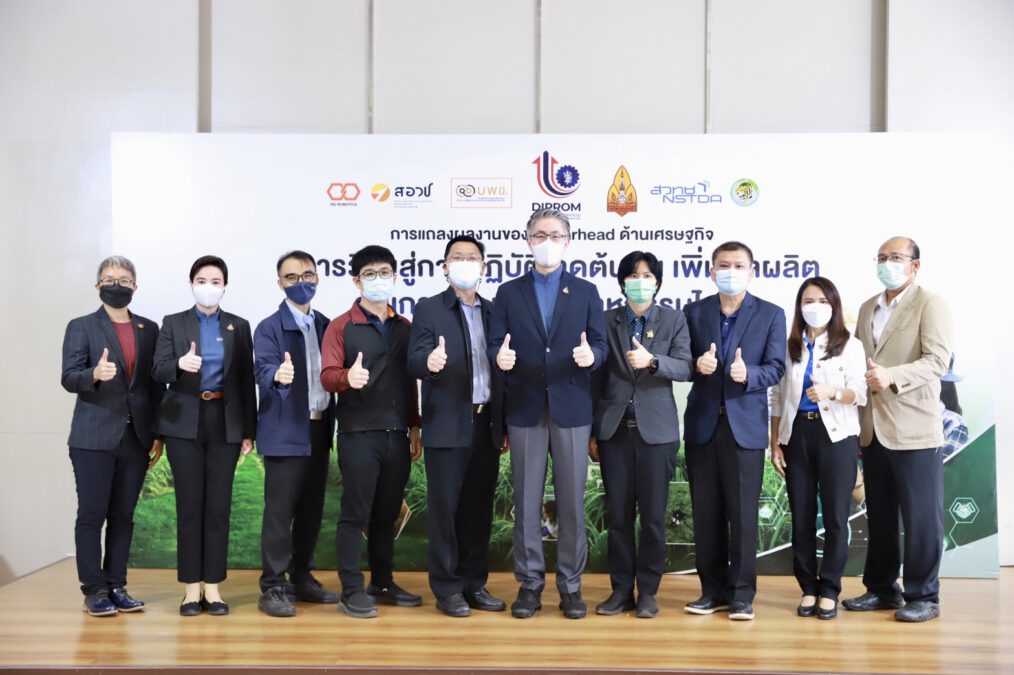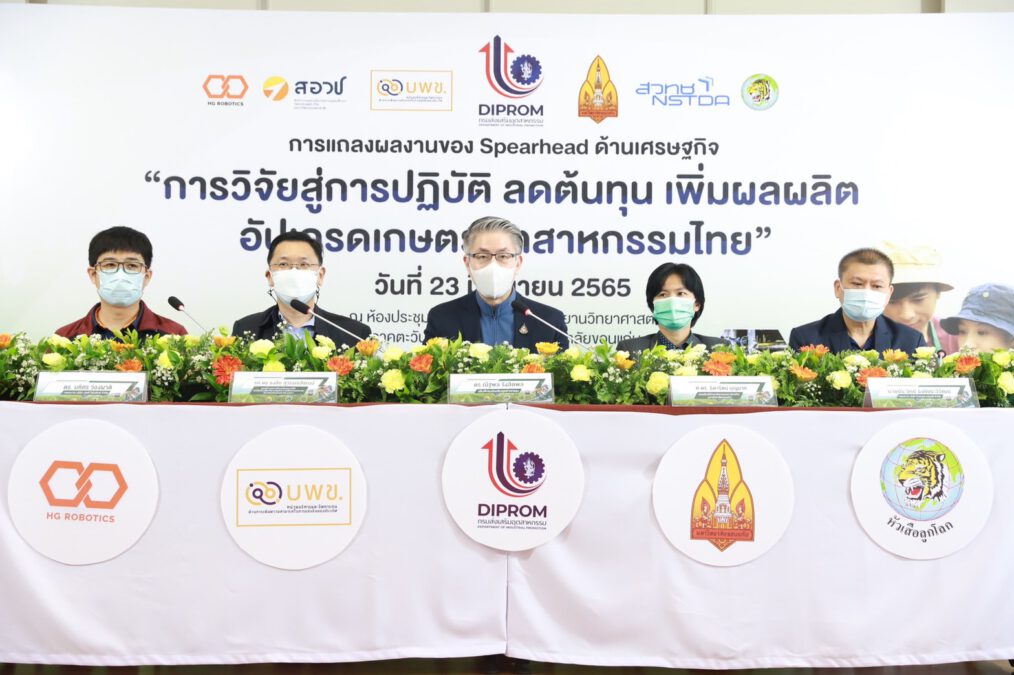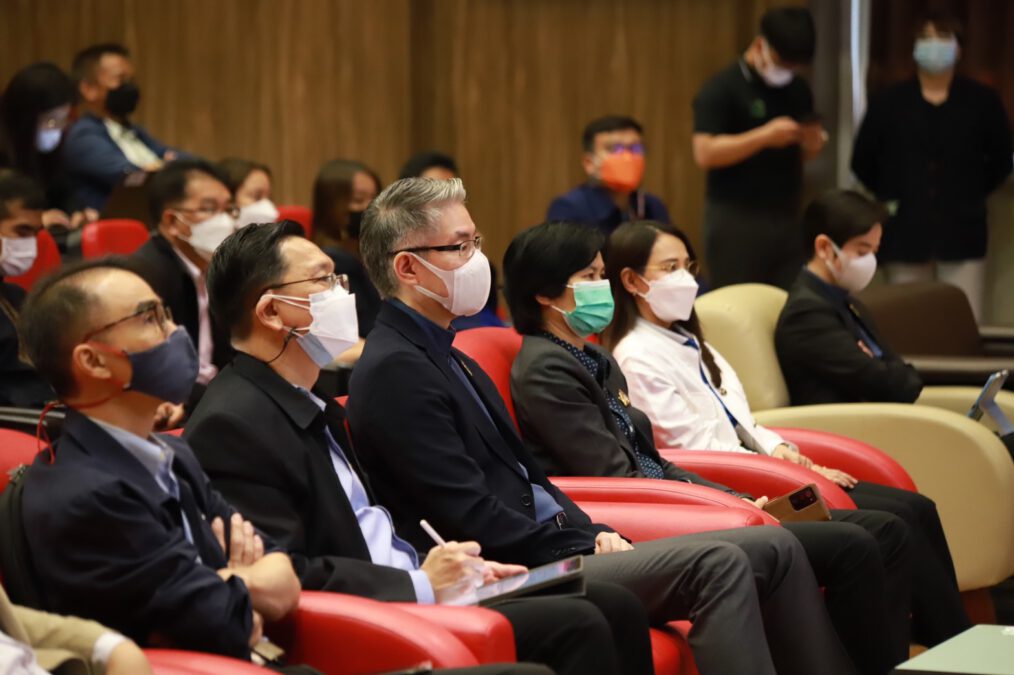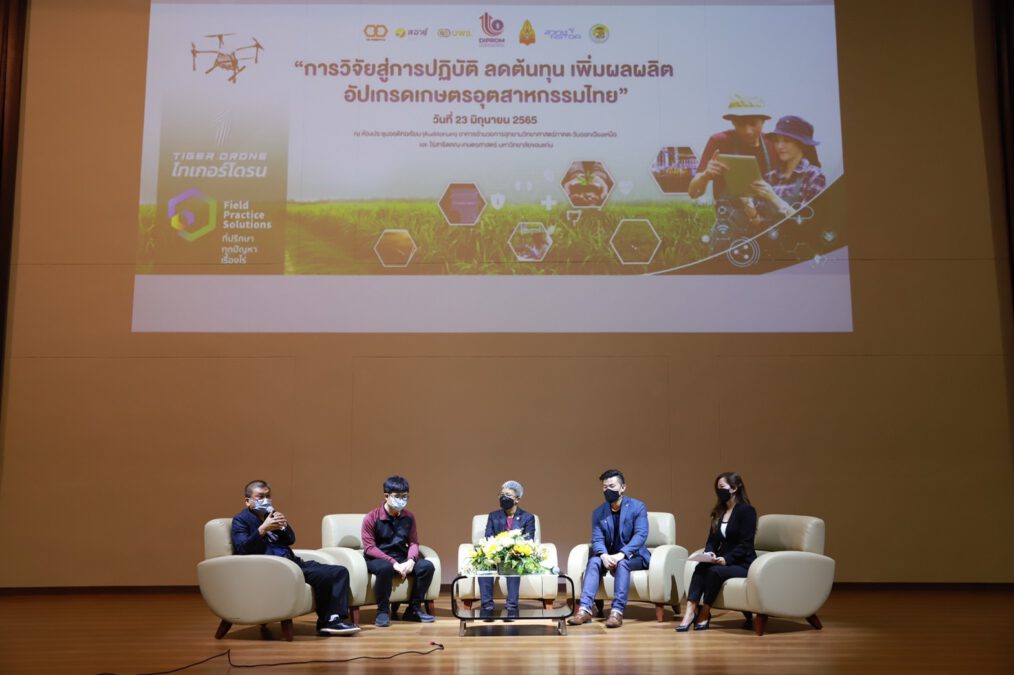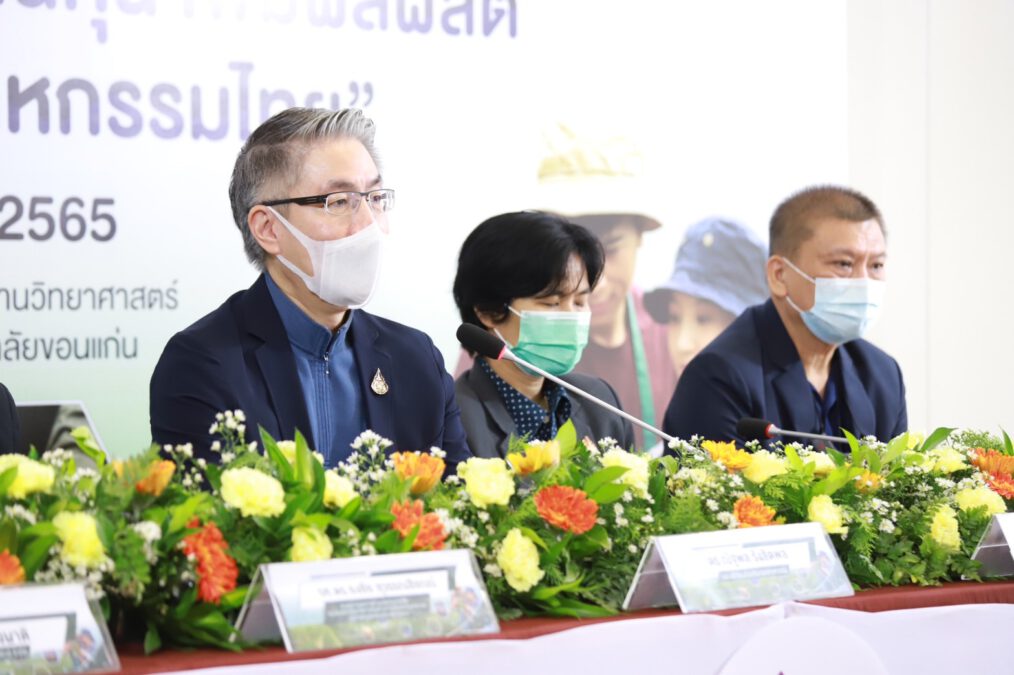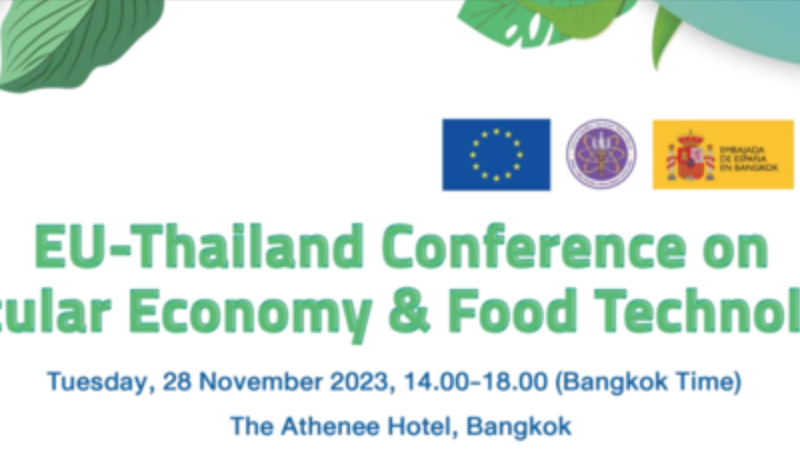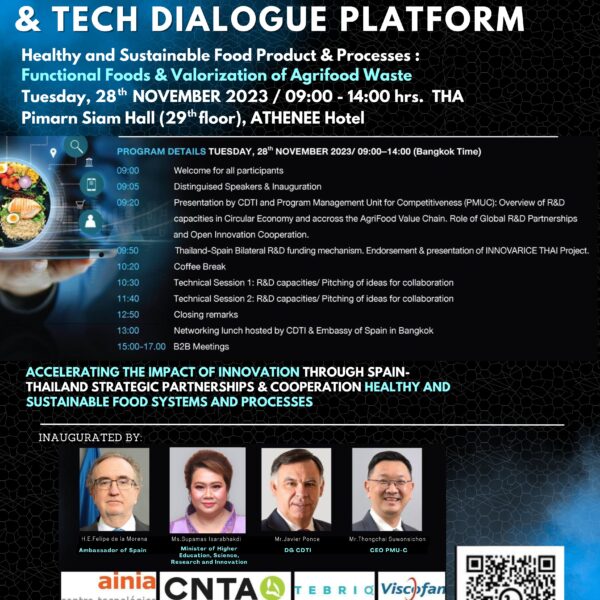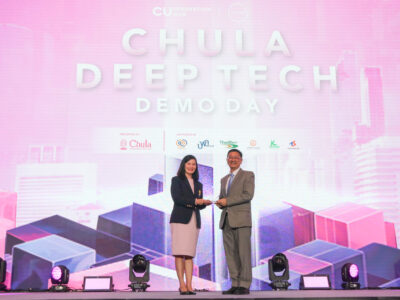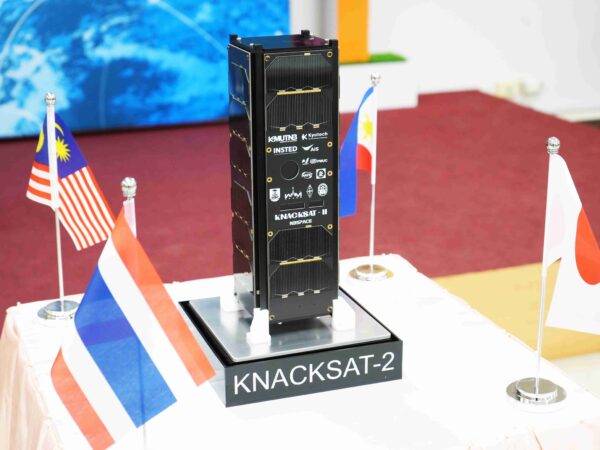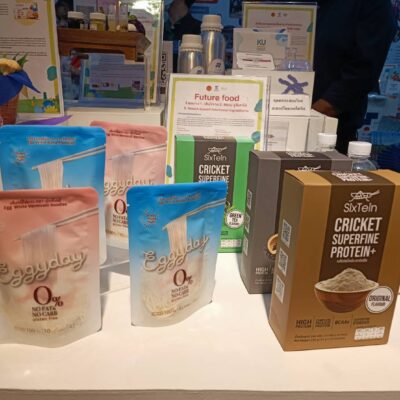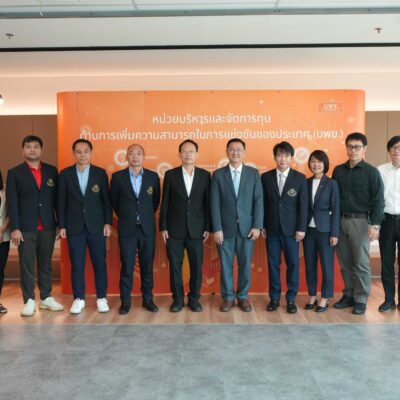Program Management Unit for Competitiveness (PMUC) joins efforts with Department of Industry Promotion or DIPROM in collaboration with a team of Thai researchers to solve problems for sugarcane farmers through the FPS (Field Practice Solutions) service platform, reducing cost and increasing productivity for sugarcane farmers and sugarcane industrial groups. The aim is to reduce the problems of below-standard quality and unstable sugar content in the sugarcane harvests. These problems lead to higher cost per ton of sugar. The effort has resulted in cost reduction and a cut-down on biomass energy consumption in the production process more than 20 percent, or about 50 million baht per year per plant.
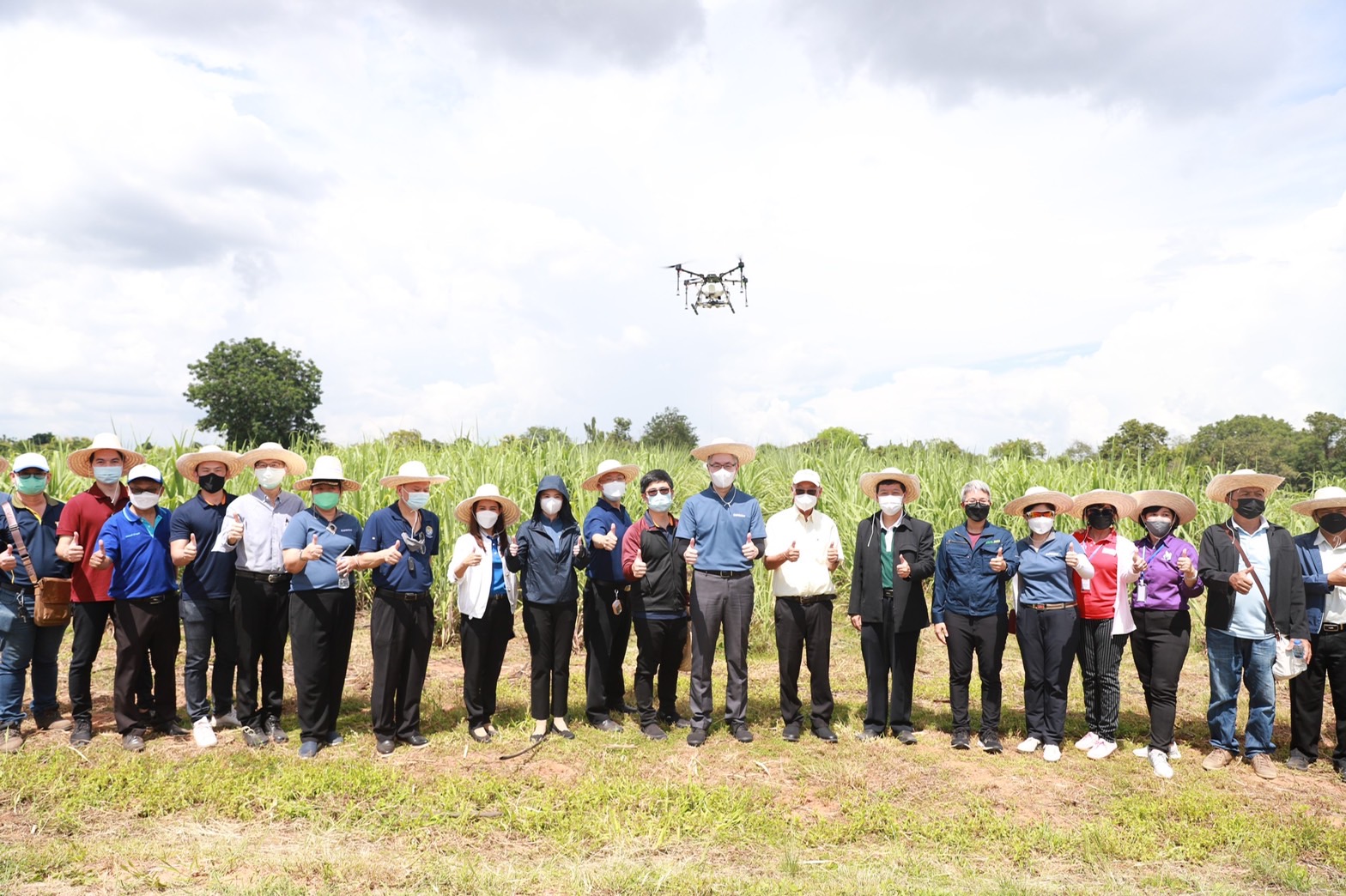
Problems faced by sugarcane farmers, ranging from uncontrollable quality and quantity of the harvest, to unstable sugar content, resulted in higher production cost per tone of sugar, which led to lower competitiveness of the Thai sugarcane and sugar industry. Therefore PMUC, the Department of Industry Promotion, and a team of Thai researchers have joined efforts in tackling the problems by implementing innovative technologies to enhance Thai agricultural sector to become what can be called Smart Farming. Further, modern technologies have been utilized in establishing guidelines for creating value added for agricultural crops by leveraging science,technology, and innovation in solving problems arising in the agricultural process, including precision agriculture, resulting in higher yields and lower cost in terms of raw materials and work time for the sugarcane farmers.
Assoc. Prof. Thongchai Suwanasichan, Ph.D., Deputy Director of Program Management Unit for Competitiveness (PMUC) added that, “This project is an example of the success of cooperation among research teams from educational institutions and private companies in expanding their work in technology research and development, as well as innovations in robotics and automation. Part of the budget was subsidized under the Spearhead economic plan, with the National Science and Technology Development Agency (NSTDA) as the management and delivery agency or ODU to oversee the project. This helped to enable the research outcome to be applied in real practice in the Thai agro-industrial sector, especially the sugarcane and sugar industry where Thailand is one of the world’s leading exporters. Working in farmland with precision agriculture technologies and automated management of sugarcane plantations with the work plans and decision support system via the project’s FPS (Field Practice Solutions) service platform, costs will be reduced, and productivity will be increased for agriculturalists. This ultimately will help increase the level of competitiveness for the processing plants within the agro-industry supply chain with the platform technology developed by the project team.”
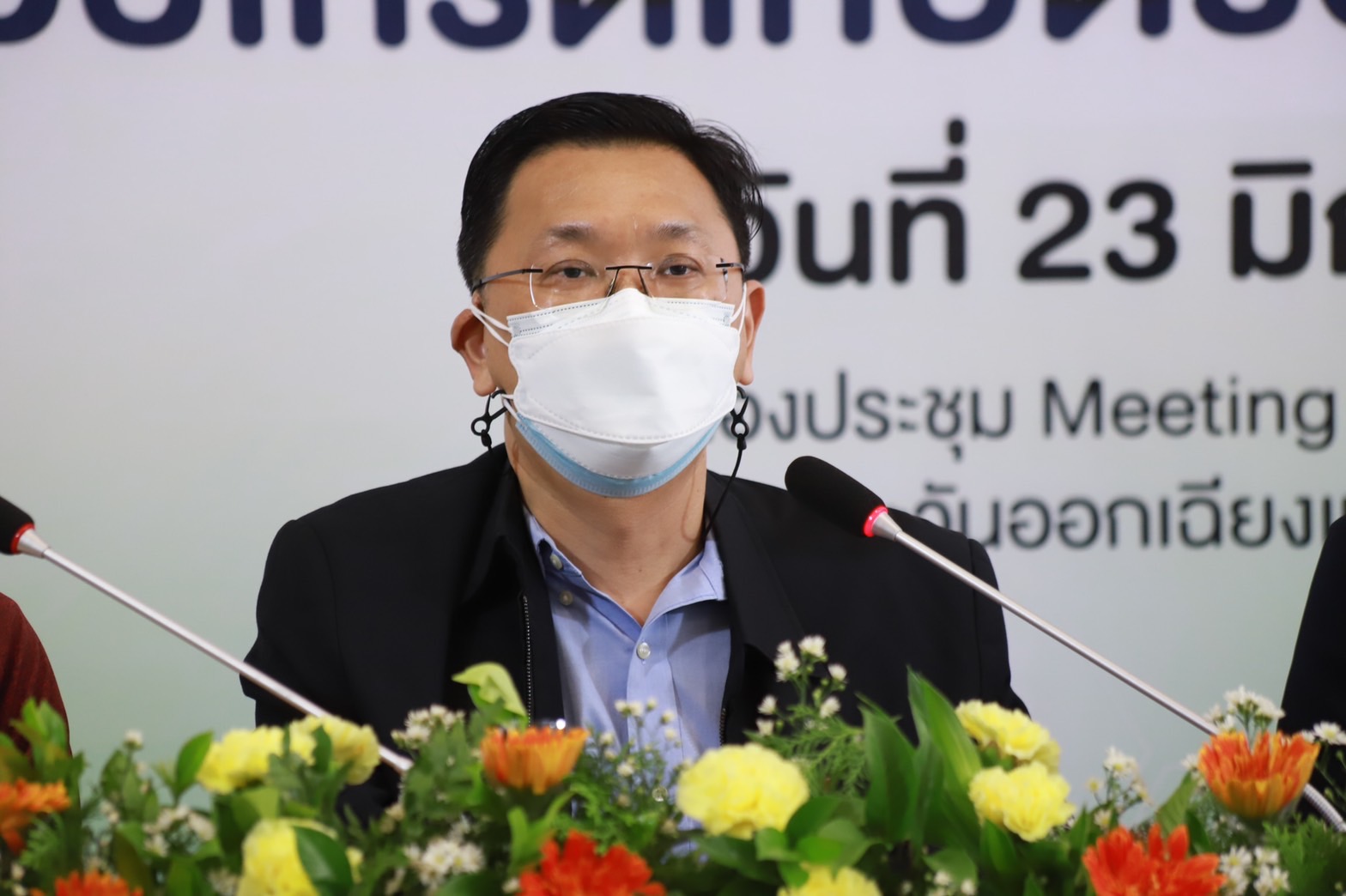
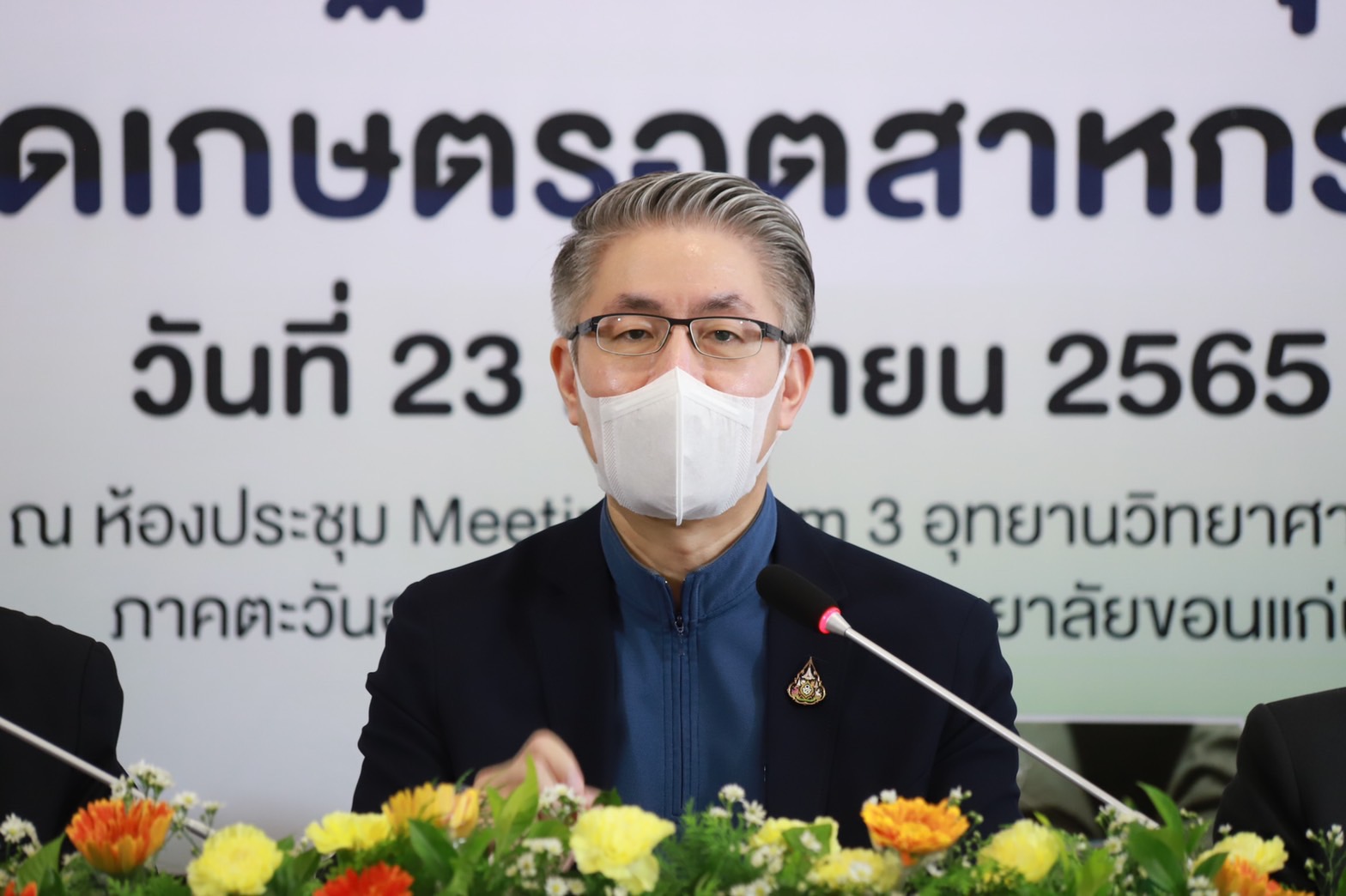
Mr. Nattapon Rangsitphon, Ph.D., Director General of the Department of Industry Promotion disclosed that as General Prayut Chanocha, the Prime Minister, who has been appointed as the President of the Spearhead economic plan on the topic of robotics and automation programs, and intelligent logistics system plans, including the policy promoted by Mr. Suriya Juangroongruangkit, Minister of Industry, mandated the Department of Industry Promotion or DIPROM (DIPROM) to promote and develop the industrial agriculture sector, especially the cane and sugar industry, which is a vital part of the country’s economic development. Currently, it is found that sugarcane farmers are facing the problem of inability to control the quality and quantity of the harvest. In addition, the quality of sugar cane is below accepted standard and the sugar content is unstable. As a result, the production cost per ton of sugar is higher, causing the competitiveness of the cane and sugar industry to decline. Therefore, the introduction of modern technology innovations serves as an integral part in empowering Thai agriculturalists to become Smart Farmers, including the utilization of modern technologies to build a framework for adding value to agricultural products.
The Department of Industry Promotion, or DIPROM, has subsequently adopted the policy of DIPROM CARE through development. and research of appropriate technologies and innovations to increase productivity and reduce costs in terms of raw materials and time for the agricultural sector. This includes integration between public and private sector partners to promote and enable Thai people to be able to successfully research FPS (Field Practice Solutions) service platforms. Examples include a systemic algorithm to create crop maps and crop disease outbreak maps from aerial photographs; algorithms to create a database in the Geo-spatial Information System (GIS) from the crop map; an automated system for mixing and filling spray tanks for drones; the automatic variable spraying module that can be equipped on the Mobile-KIT drone and Mobile Application for identifying plot coordinates and tracking activities in the planting plots; and an AI system to assist in creating work plans, recording and displaying the work results of agricultural machinery, recommending automatic, high-precision, fertilization of individual plots, making recommendations in areas of maintenance, as well as harvesting and linking with the monitoring and measurement systems. Additionally the system will be able to implement new system programs for the adjustment of farm operations according to new work plans, encompassing the design of planting plots, plant care and maintenance, crop protection and transportation. The operational plans can be modified according to the needs of the user or the type of plants. This helps to reduce the loss in terms of quality of the produce, waiting time, and helps increase efficiency of machinery and equipment, e.g. in the case of the cane and sugar industry, helping to reduce the cost of sugar or biomass production by more than 20 percent, or about 50 million baht per year per plant. Furthermore harvesting of sugarcane production can be scheduled to happen at the peak of harvesting season when weight and sugar content is at maximum. The use of harvesting machinery can be optimized to its fullest potential, allowing the reduction in number of machines used and cutting down on maintenance costs. The ultimate outcome is high-quality sugarcane being delivered to the factories at full production capacity each day, and reducing spoilage of raw materials, increasing the efficiency of sugar production per each sugarcane, as well as reducing the number of days to accept sugarcane delivery from cane plantations. This helps to reduce the cost of producing sugar per ton.
Assoc. Prof. Kwantri Saengprachathanaruk, Ph.D., lecturer of Agricultural Engineering , Faculty of Engineering, Khon Kaen University, who is the head of the research project funded by the Program Management Unit for Competitiveness (PMUC), said that “Cane farmers are aware of the problem of high production cost and want to reduce this expenditure. But the problem is that there has been no technology or innovation to help farmers accurately assess the risks of reducing cost and increasing productivity in sugarcane fields. This led to the effort to research and develop, in cooperation with the private sector, a system for analyzing and interpreting aerial imagery obtained from unmanned drones in order to bring necessary information to the production analysis and planning process in order to reduce the risk inherent in sugarcane farm management by farmers or entrepreneurs.” The research team therefore collaborated with HG Robotics Co., Ltd., which specializes in Artificial Intelligence (AI) systems and Global Crops Co.Ltd., and implemented use of drones in survey and exploration in order to create a solution to the problem according to the principle of “Precision Agriculture”
Dr. Mahisorn Wongphati, HG Robotics Co., Ltd., added that as a result of such success, it has led to commercial expansion. At present, there are many sugar factories interested in paying the service fee for the team to implement it in the first year of the project, and some in the second year. The early implementation primarily focuses on controlling production costs and managing plots, such as proper fertilization or application of chemical drugs, which is a specific management protocol or guideline. The last year will be the management of big data (Big Data) to become information that is used to make long-term planning decisions, including information about each method or each solution, as well as the cost and the risks for farmers or factories to base further decisions on.
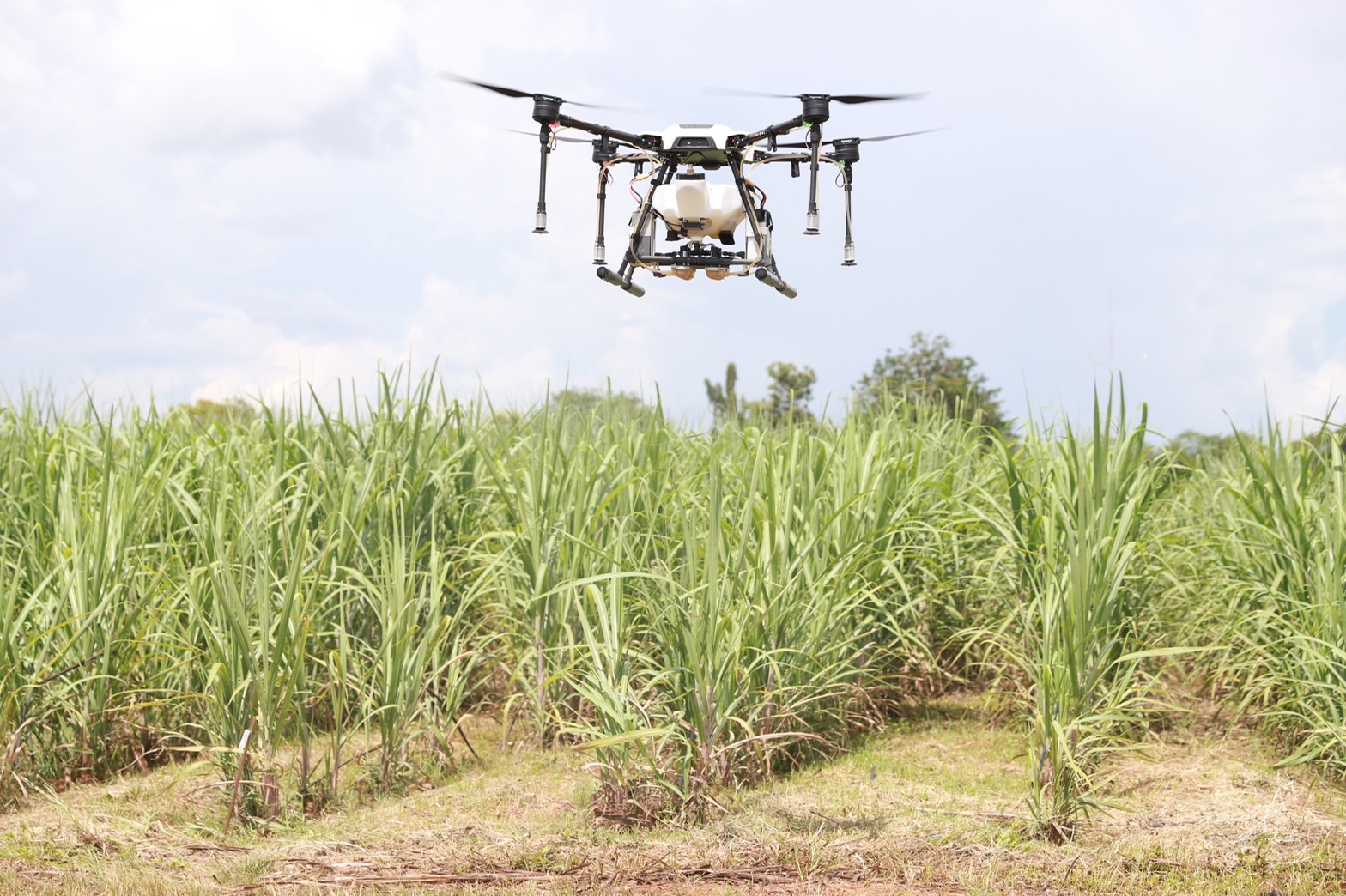
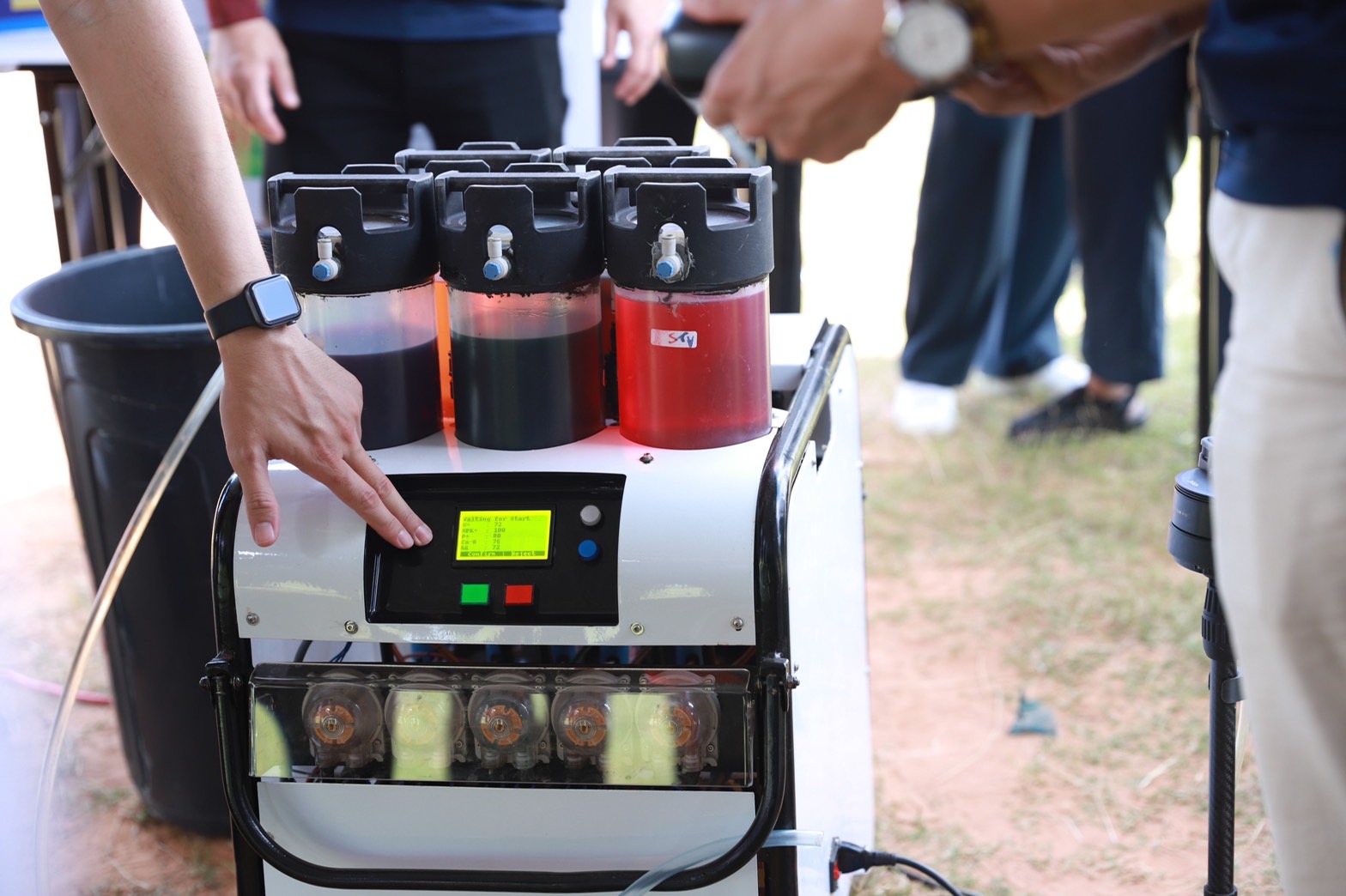
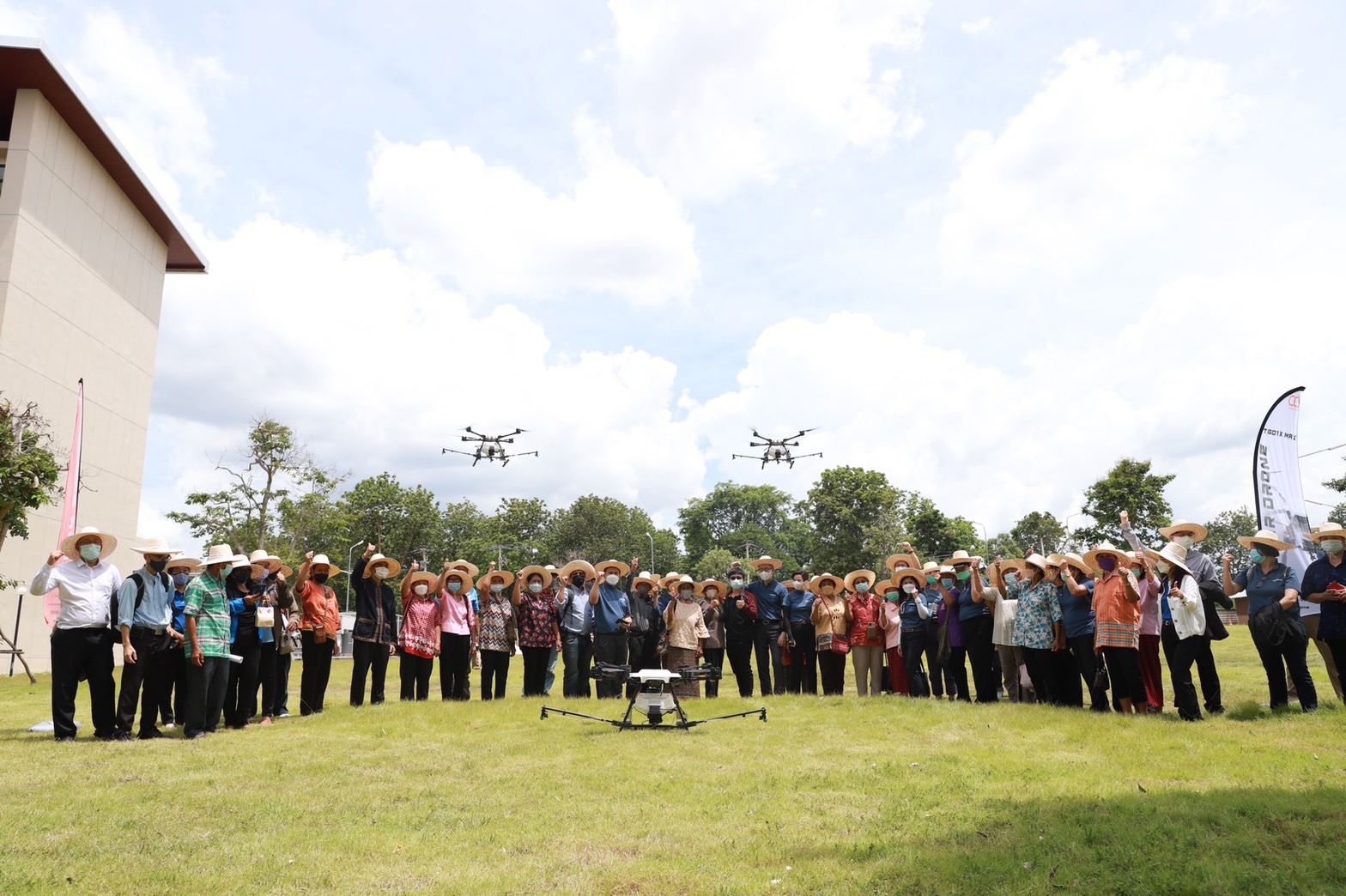
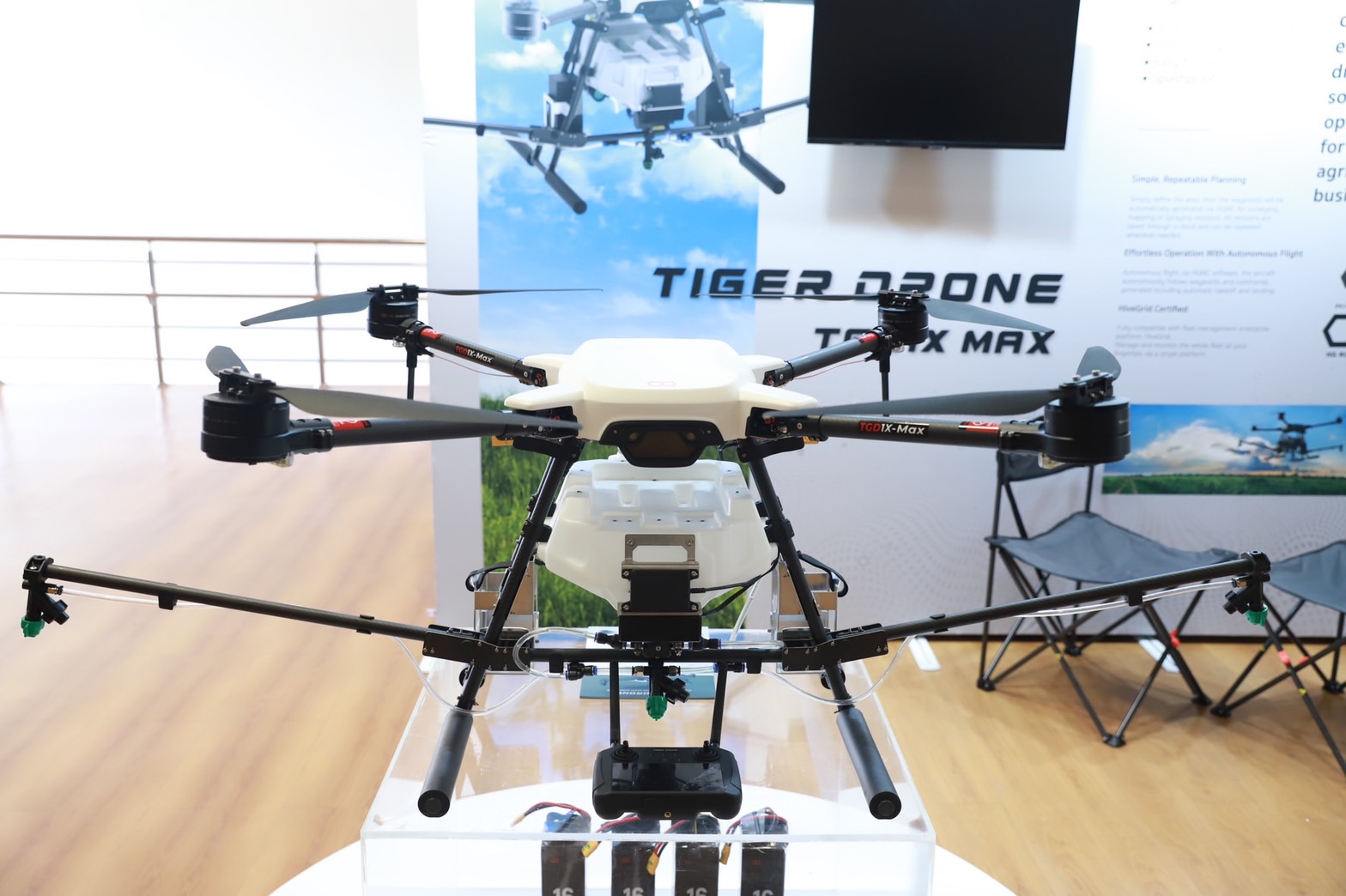
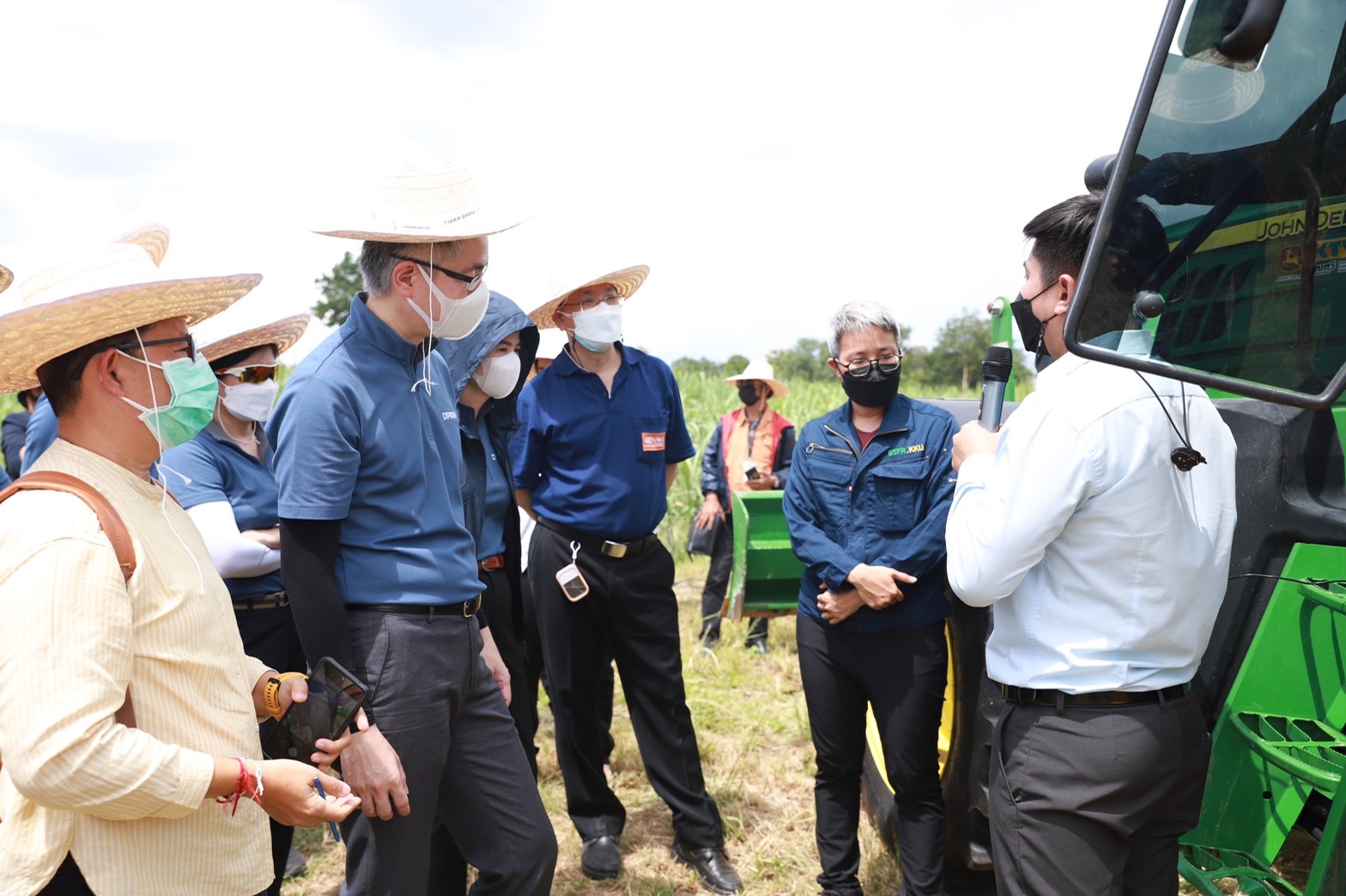
Source: Department of Industrial Promotion

